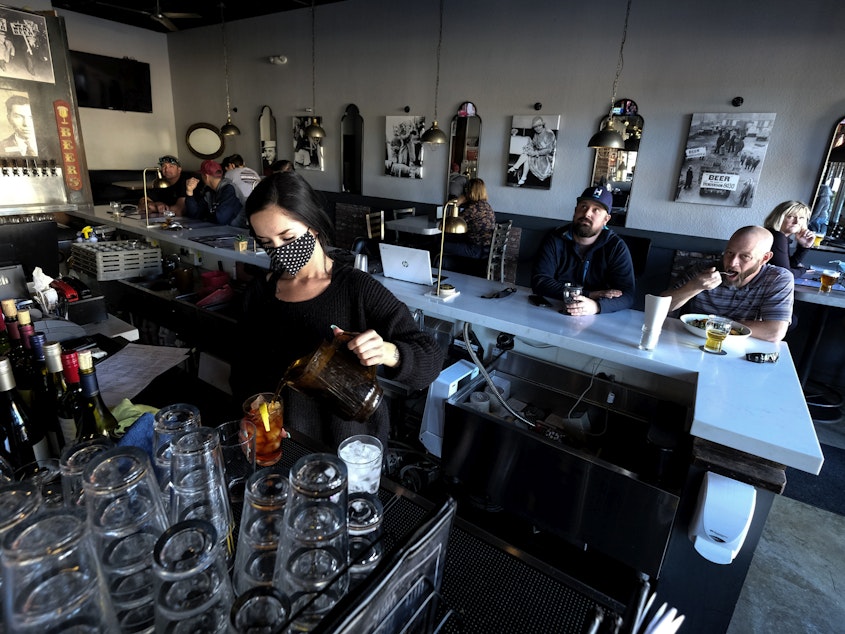Tips And Service With A Smile Drive Sexual Harassment In Restaurants, Study Finds

There is broad agreement that the restaurant industry is rife with sexual harassment.
More than 70% of female restaurant employees have been sexually harassed, one recent survey found, and half experience sexual harassment on a weekly basis, according to another. Harassment complaints come to the Equal Employment Opportunity Commission from restaurant industry workers more often than from any other sector.
Now, a new pair of scientific studies looks to confirm why.
Dependence on tipped wages, along with job requirements to appear friendly and pleasant — in other words, "service with a smile" — jointly create a culture of sexual harassment, according to a team of researchers at the University of Notre Dame, Penn State University and the Emlyon Business School in France, who say their study is the first to empirically link tipping to sexual harassment.
"We show it's really the joint effects of customer tipping and requirements for positive gestures that drive sexual harassment. When either isn't present, customers don't feel the same sense of power," said Timothy Kundro, a professor at Notre Dame's Mendoza College of Business, in a release from the university.
The research, recently published in the Journal of Applied Psychology, had two parts.
First, Kundro and his co-authors surveyed 92 full-time service employees about their income, whether they were required to appear positive at work and how frequently they experienced sexual harassment.
Then, they recruited more than 200 men to participate in an online experiment where the men played the role of the customer, as researchers adjusted variables like the waitress' facial expression, and whether the waitress was dependent on tips.
The results, they say, confirm that dependency on tips and a requirement to appear emotionally pleasant on the job work together to increase an employee's risk of being sexually harassed.
"It's really compelling, in my view," Kundro said, "because we replicated this from both the perspective of the employee and the customer and our findings for each were the same — employees who rely on tips face more sexual harassment, but only when required to engage in 'service with a smile.' "
The team's findings on tipping back up those of previous nationwide surveys.
A 2018 report by the Restaurant Opportunities Center, a non-profit group that advocates for better working conditions for restaurant workers, found that a majority of respondents who reported experiencing sexual harassment associated that harassment to their dependence on tips.
While women make up roughly half of restaurant employees overall, they are about two-thirds of tipped employees, who report sexual harassment at higher rates than their non-tipped colleagues.
More than half of women in tipped jobs said depending on tips led them to accept behaviors that made them "nervous or uncomfortable," according to a 2014 survey from the group.
"By introducing many women to working life, the industry establishes cultural norms around sexual behavior that can shape perceptions of what's acceptable behavior in the workplace that workers carry with them long after they've left the restaurant industry," the 2018 ROC report reads.
Kundro says his study shows that restaurants can reduce sexual harassment for their employees by eliminating their dependence on tips, or allowing them to perform their jobs without being required to smile.
"You really can't have both," Kundro said. "Yet, organizations often do — which may explain why sexual harassment is so pervasive in the service industry." [Copyright 2021 NPR]



